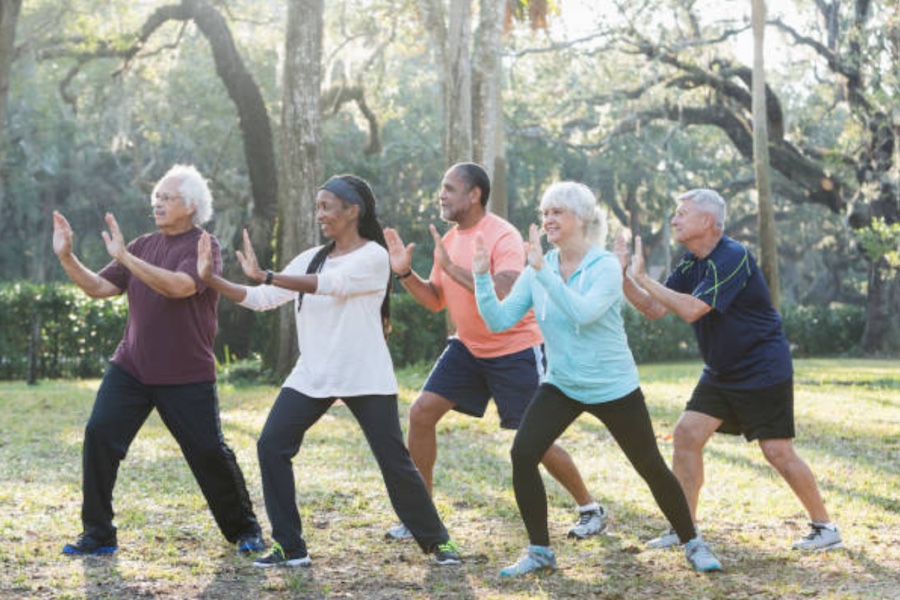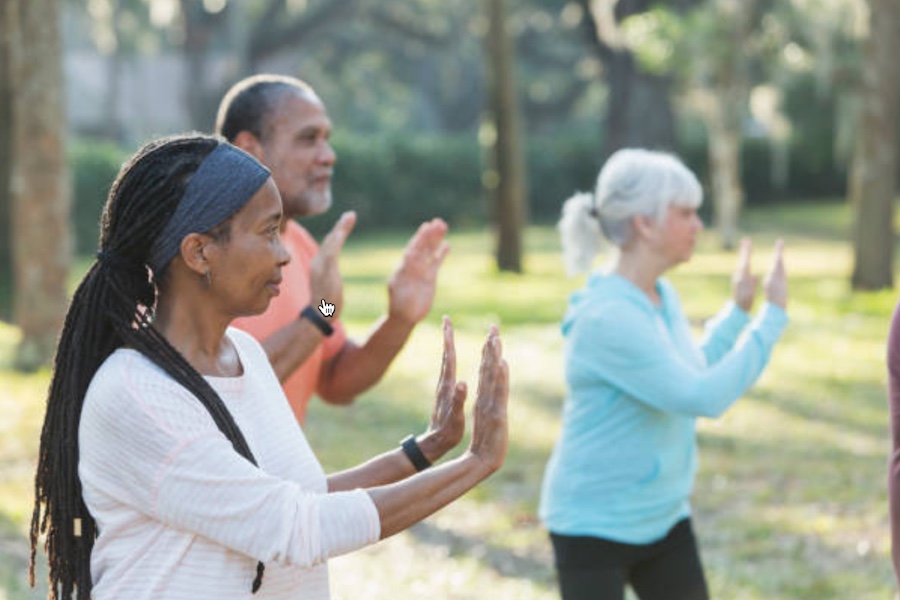The slow, graceful movements of Tai Chi may offer lasting benefits for people with Parkinson's disease. New research shows that practicing Tai Chi twice weekly for 5+ years is linked to slower disease progression and reduced medication.
Catch up quick: Parkinson's is a progressive nerve disorder involving tremors, stiff muscles, and movement issues. Drugs can help symptoms but don't change the disease progression.
Why it matters
Tai Chi has the potential to significantly improve the quality of life for Parkinson’s patients by reducing symptoms and complications in the long term.
1 big idea: When facing progressive Parkinson's, keeping mobile through gentle exercise like Tai Chi provides physical and mental benefits.

A closer look
- 147 Parkinson’s patients practiced Tai Chi twice weekly for an hour, helped by classes that improved their technique.
- The other group of 187 Parkinson’s patients received standard care but didn’t practice Tai Chi.
- Disease severity, medication use, sex, age, and education level were similar in both groups.
Study results
Patients doing regular Tai Chi twice weekly had superior outcomes than those receiving standard Parkinson’s care.
- The Tai Chi group experienced slower symptom progression, fewer increases in medication, and reduced disability.
- The Tai Chi group also had fewer complications like dyskinesia (involuntary movements), dystonia (abnormal postures and muscle spasms), and mild cognitive impairment.
- The Tai Chi group also improved their sleep, mood, and quality of life.
- Falls and pain decreased, too.

Zoom out
While more research is needed, the findings add to evidence that Tai Chi may ease Parkinson's symptoms both in the short and long run, reducing patient and caregiver burden.
What's next: Researchers plan to investigate Tai Chi’s impacts on motor and non-motor Parkinson's symptoms. More extensive randomized trials will help prove cause and effect.
The takeaway
For Parkinson's patients, incorporating regular Tai Chi training may slow advancing symptoms for years. Tai Chi is not a cure but offers a beneficial supplementary therapy.

